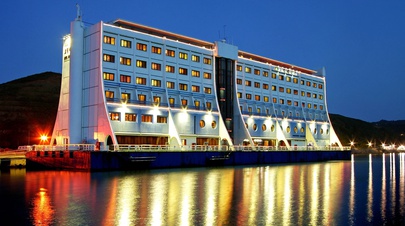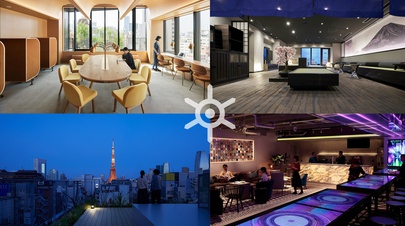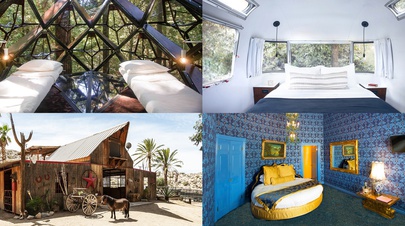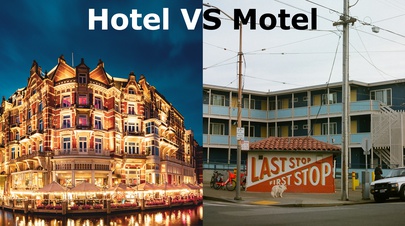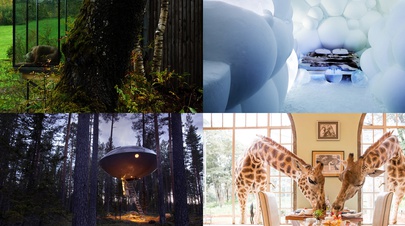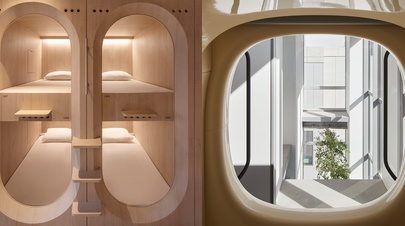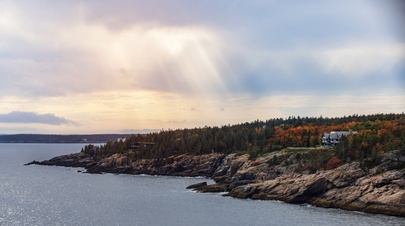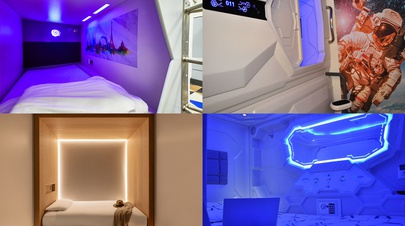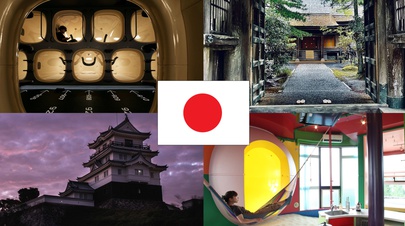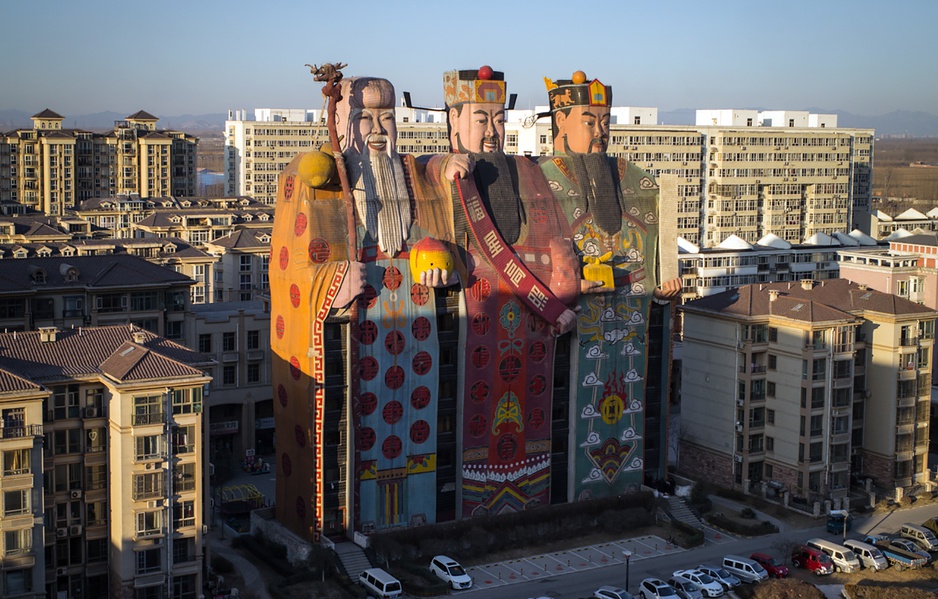
Walk into a hotel through the left foot of an ancient deity. Sleep inside a giant peach clutched in the hand of a god. Wake up with your head literally inside another god's head. The Tianzi Hotel in China's Hebei province is a ten-story tribute to three Chinese gods of fortune, prosperity, and longevity that earned a Guinness World Record and might soon fall victim to the government's war on "weird" architecture.
Three Gods, One Very Odd Building
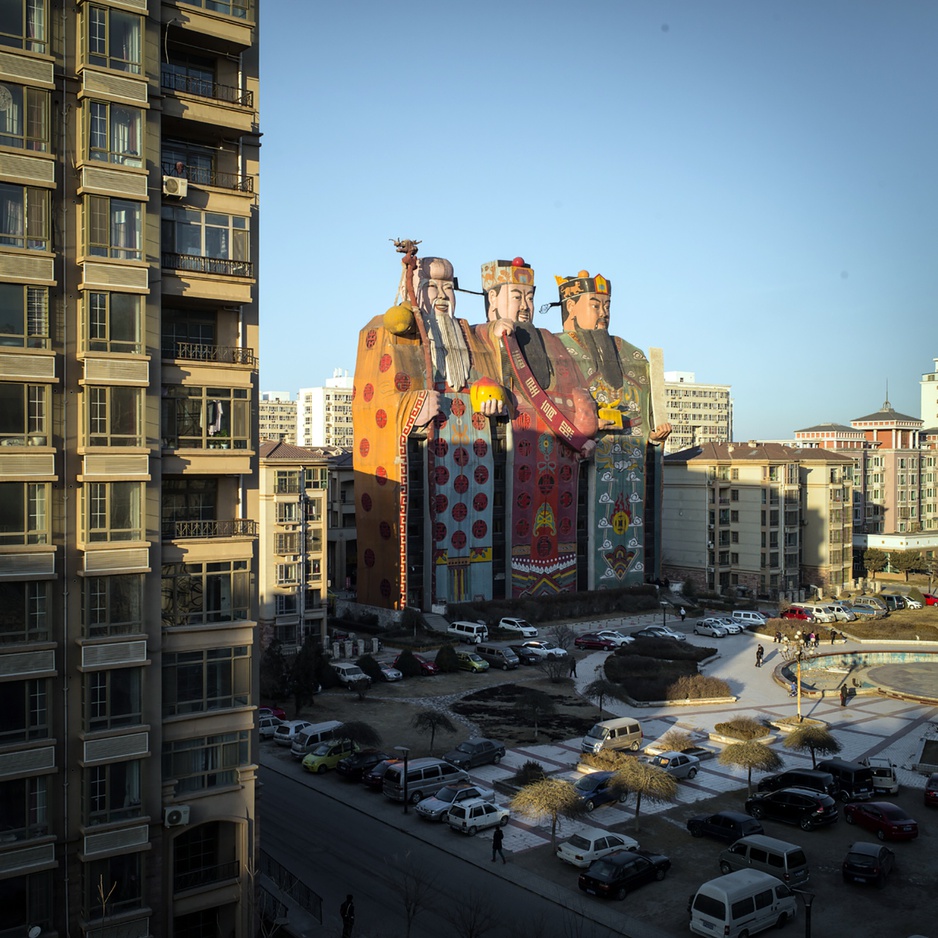
The Sanxing - "Three Stars" are the gods of Jupiter, Ursa Major, and Canopus - Photo by Han Lei
About 50 kilometers from Beijing, in the city of Langfang, three colossal figures in traditional robes tower 42 meters above the street. This is the Tianzi Hotel, constructed in 2000 as a literal interpretation of the Sanxing deities from Ming Dynasty tradition. The name translates to "Son of Heaven Hotel," though it's also called the House of Three Heroes.
The three figures represent fundamental attributes of the good life in Chinese culture. At the center, draped in red, stands Fu – the god of fortune and happiness, associated with the planet Jupiter. To the right (from the viewer's perspective) is Lu, wearing green and representing prosperity, specifically the salary and rank of government officials. On the left is Shou, the white-bearded god of longevity who resembles a Chinese Santa Claus. In traditional Chinese astronomy, his star is the South Pole, believed to control mortal life spans.
Inside the Gods
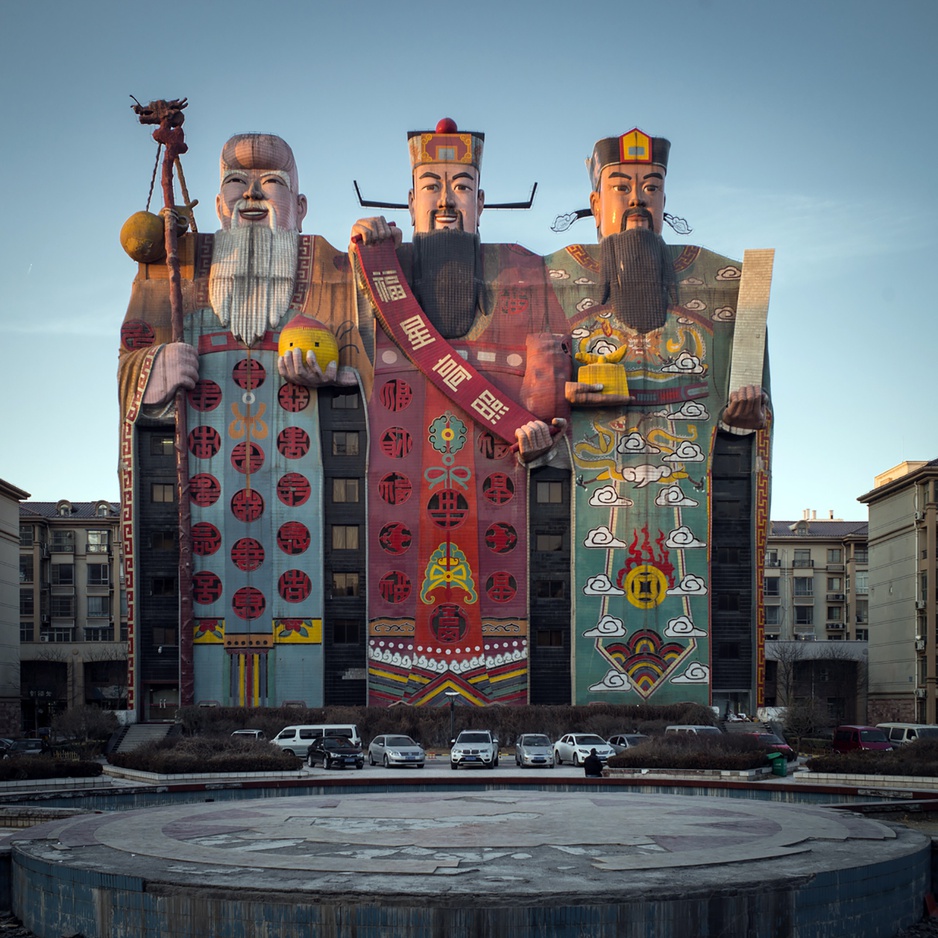
Photo by Han Lei
You enter the hotel through a door in Shou's left foot. The windows are cleverly hidden within the patterns and ornamentation of the gods' robes, making the facade appear seamless from a distance. The building has two entrances, positioned on the right and left sides.
While the exterior screams maximalism, the interior takes a different approach. Most rooms are simply furnished, a stark contrast to the flamboyant facade. But two rooms deserve special mention. The first is located inside the peach that Shou holds in his left hand – yes, you can actually rent the peach room. The second is the presidential suite, tucked inside the head of Fu, the central deity.
Finding the place is another matter entirely. Most internet and map searches will likely lead you astray. Your best bet is GPS coordinates: 39°57'10.02"N, 116°52'1.62"E
Record Breaker with Mysterious Details
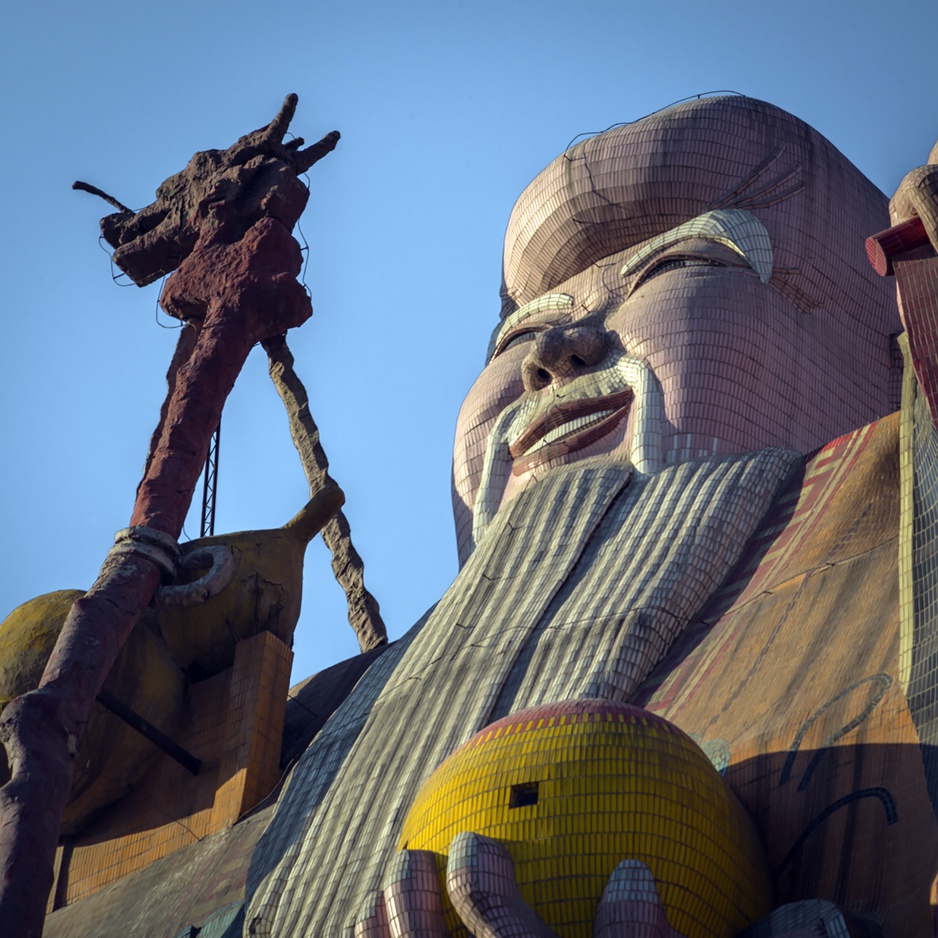
Shou - the Old Man of the South Pole - Photo by Han Lei
In 2001, shortly after construction finished, the Tianzi Hotel earned the Guinness World Record for the "world's largest image building". Despite this distinction and its consistent ranking among the world's most bizarre hotels, concrete information about the interior remains surprisingly scarce. Tales of visits are passed down from traveler to traveler, making the experience delightfully mysterious in an age where you can usually find exact room dimensions before booking.
The hotel sits in Langfang's economic and technological development zone, known as the "Garden of the Son of Heaven," which inspired the building's name.
China's War on Weird

Lu is the Chinese Taoist god of prosperity - Photo by Han Lei
The Tianzi Hotel's days might be numbered. In February 2016, the State Council issued a directive banning "weird" architecture. New buildings must be "suitable, economic, green and pleasing to the eye" rather than "oversized, xenocentric, weird," and non-representative of China's cultural heritage.
The policy followed President Xi Jinping's October 2014 criticism of unconventional buildings at a literary symposium, where he stated that art should be patriotic and "be like sunshine from the blue sky and the breeze in spring".
The Tianzi Hotel found itself in notable company on the government's implicit blacklist. Other criticized structures include Rem Koolhaas's CCTV headquarters (nicknamed "Big Pants"), another pair of tower "britches" in Suzhou called the Gate to the East, and the People's Daily headquarters, which resembled a phallus during construction.
Liu Shilin, head of the Institute of Urban Science at Shanghai's Jiao Tong University, defended the policy, noting that many strange buildings were costly, impractical, and torn down soon after completion.

Photo by Han Lei
For now, the three gods of fortune, prosperity, and longevity still stand in Langfang – a testament to a brief era when Chinese architecture embraced the wonderfully absurd. Whether they'll continue welcoming you through Shou's left foot remains to be seen.

